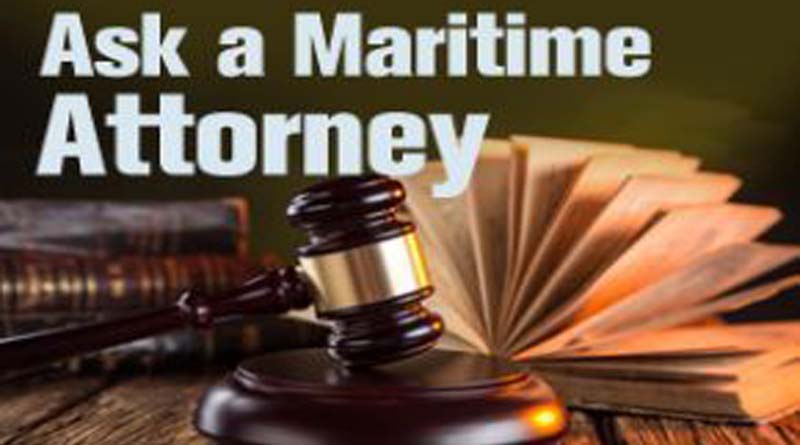Ask A Maritime Attorney: I was stopped by the Coast Guard and searched with no ability to consent or object. Can the Coast Guard preform a warrantless stop?
Question:
Last year I was stopped by a Coast Guard boat while leaving Long Beach Grand Prix on my boat. I was given a sobriety test by one member of the Coast Guard crew, while others searched my boat from bow to stern while performing a “safety inspection,” and the remainder of their crew stayed aboard their boat with their holstered weapons clearly visible. They did not give me an opportunity to consent or object to the search, and they never showed me a search warrant. They were very polite, and they let us go without incident, but the fact that they simply boarded our boat without a warrant was very disturbing to me. Did they exceed their legal authority? Can the Coast Guard simply stop and search any boat at random? Is this a homeland security thing?
Answer
This is a timely question with this year’s Long Beach Grand Prix right around the corner. The City of Long Beach has hosted the event for almost 50 years, turning the streets of downtown Long Beach into a racetrack for three days every April. The City markets the event as “Southern California’s 200-MPH Beach Party,” and many race fans bring their boats to Long Beach Downtown Marina to join the festivities. Law enforcement is visible everywhere, and sobriety checks are conducted throughout the weekend by the Coast Guard, Long Beach Police, and Harbor Patrol.
Based the description of the incident provided by our reader, it appears that he cooperated with the Coast Guard during their inspection notwithstanding his concern over the lack of a warrant. He did the right thing. Federal law expressly authorizes the search that he was subjected to, and the United States Supreme Court has ruled that the search does not violate our Constitutional rights.
The idea of a warrantless search does sound like a recent homeland security measure, but the Coast Guard’s authority actually dates back to 1949 with the enactment of a federal statute which, in turn, has its roots in the Revenue Service Act of 1790. The Revenue Service Act authorized the Revenue Service (the predecessor to today’s Coast Guard) to board ships for the purpose of demanding manifests and searching those ships. The Revenue Service Act expressly granted free access to every part of the ship.
The currents statute (14 U.S.C. §89) authorizes the Coast Guard to “make inquiries, examinations, inspections, searches, seizures, and arrests upon the high seas and waters over which the United States has jurisdiction,” all without a warrant and without probable cause or suspicion that a crime has been committed. And this authority has been extended to the local harbor police as well.
Courts have consistently enforced these laws over the past 200 years, and held that a brief, random stop of a vessel does not violate the operator’s right to be free from unreasonable search and seizure. This treatment differs from the search of a vehicle, but the Supreme Court noted that ‘important factual differences between vessels located on waters offering ready access to the open sea, and automobiles on principal thoroughfares, justify the application of a less restrictive rule for vessel searches.
Prior to 9/11, the Coast Guard took advantage of this inspection authority for purposes ranging from safety inspections to sobriety checks to drug enforcement. In recent years they have of course added homeland security to their mission, and the nature and frequency of these inspections has probably changed. However, the men and women of the Coast Guard who conduct the inspections are invariably polite and professional, and you can expect to be on your way quickly and with very little inconvenience.
Here in Southern California, anyone who has traveled by boat to a large waterfront event such as a fireworks display or the Long Beach Grand Prix has probably been subjected to a stop by the Coast Guard or Harbor Patrol or Lifeguards. Your own professionalism during the course of the inspection will be greatly appreciated by the crews of those boats and it will help to minimize your inconvenience.
David Weil is licensed to practice law in the state of California and as such, some of the information provided in this column may not be applicable in a jurisdiction outside of California. Please note also that no two legal situations are alike, and it is impossible to provide accurate legal advice without knowing all the facts of a particular situation. Therefore, the information provided in this column should not be regarded as individual legal advice, and readers should not act upon this information without seeking the opinion of an attorney in their home state.
David Weil is the managing attorney at Weil & Associates in Seal Beach. He is certified as a Specialist in Admiralty and Maritime Law by the State Bar of California Board of Legal Specialization and a “Proctor in Admiralty” Member of the Maritime Law Association of the United States, an adjunct professor of Admiralty Law, and former legal counsel to the California Yacht Brokers Association. If you have a maritime law question for Weil, he can be contacted at (562) 799-5508, through his website at www.weilmaritime.com, or via email at dweil@weilmaritime.com.


